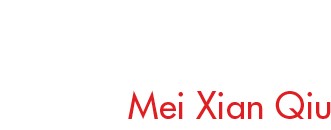____________________________________
HYPERALLERGIC ARTICLE:
A Hundred Flowers Bloom When China Invades
- by An Xiao on April 26, 2012
LOS ANGELES — In 1957, Mao Zedong launched the Hundred Flowers Campaign. It was to be a glorious liberalization, an flourishing of the arts, intellectualism and culture. A few weeks later, threatened by the tide of criticism sweeping in, the Communist Party would crack down on their blooming flowers. Mao’s declaration to “let a hundred flowers bloom” is often mistranslated as “Let a thousand flowers bloom.”
Let a Thousand Flowers Bloom, a photographic series by Los Angeles artist Mei Xian Qiu, pays reference to this brief period in Chinese history. The first place winner of the 2012 juried competition at the Los Angeles Center for Digital Art, Flowers is a series of digital photos on Plexiglas that depict, as Qiu’s introductory placard says, “a Chinese takeover of the United States.”
The installation at LACDA creates an ominous vibe to the show, as two of the men from the photos kiss in black-and-white slow motion while an ambient soundtrack resounds through the space. But the takeover, far from a bloody invasion, is filled with cherry blossoms, a “sweet conceit of romance and violence,” as Qiu writes in her 2011 statement.
Qiu plays with this inversion and cross-cultural exchange further by working not with Chinese nationals but “Pan Asian Americans who could be perceived as Chinese,” as well as artists and academics who study classical China. The military uniforms themselves come from a photography studio in Beijing that allows foreign visitors to re-enact images from the Cultural Revolution. And the battle more often comes in the form of kissing and holding flowers.
The images, already strong, are just the start of a larger series exploring this topic. Qiu tells me she has plans to do “different storylines,” with “different little substories of the main story.” Qiu’s series, like China’s rise on the world stage, is complex and fascinating.
___________________________________________________________________________________



